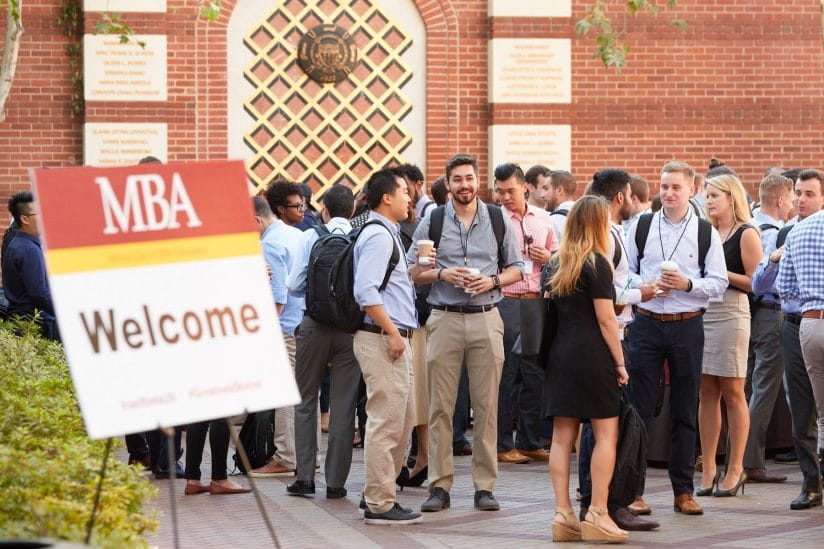
While for most schools the goal of gender equality remains elusive, one school in the United States has set a new benchmark with its incoming full-time MBA Class of 2020 the first cohort to include as many women as men — maybe even a few more women — 52 percent.
“We are proud to achieve this distinction,” said James G. Ellis, dean of University of Southern California Marshall School of Business. “Our ongoing focus on diversity and inclusion is playing out in real numbers now.
USC Marshall becomes the first top-ranked business school to achieve gender parity in an MBA program, an outcome sought by most leading business schools.
A 2017 report from the Forté Foundation, a nonprofit consortium of companies, business schools and the Graduate Management Admissions Council (GMAC) shows that the average enrolment of women in full-time MBA programs at 36 business schools in thr United States rose to about 38 percent (37.8 percent), up less than 1 percent from 37.1 percent in 2016.
In 2013 that number was 34 percent. At 12 of the schools—including Harvard Business School, Yale School of Management, the Tuck School of Business at Dartmouth and Kellogg School of Management at Northwestern University—women account for at least 40 percent of students.
Other studies suggest the number is lower. According to the business school accrediting body AACSB, the share of women to receive full-time MBA degrees from U.S. schools was below 38 percent from mid-2012 through mid-2017.
Although women earn 60 percent of graduate degrees in the United States and make up more than 50 percent of many graduate program classes, including those that feed traditionally male-dominated professions such as law and medicine, their numbers have lagged in Master of Business Administration programs.
Experts cite a number of possible reasons for this, including timing and return-on-investment. Most MBA programs mandate several years of experience in the workplace before applying, making the average age of a first-year student to 28.
Research also shows that men with an MBA go on to out-earn their female counterparts as their careers mature.
But in reaching this milestone, USC Marshall is showing that it is committed to leveling the playing field for women in business.
Australian MBAs On The Path To Equality
While no Australian schools have achieved the milestone of gender parity, a number of initiatives launched in the last few years are actively promoting women to embark on an MBA.
Five of Australia’s leading business schools have joined forces in 2015 in a landmark partnership agreement designed to tackle the gender imbalance in MBA study.
Curtin University, the University of South Australia, Monash Business School and Sydney Business School combined with the Macquarie Graduate School of Management (MGSM) to deliver their Women in MBA program (WiMBA) – which partners with business to identify top female employees and support them financially, logistically and by offering support and guidance to complete MBA study.
This WiMBA Network will make the WIMBA program available to women in South Australia, Wollongong, Melbourne, Sydney and Western Australia for the first time.
Signing the Memorandum of Understanding MGSM’s then Director of Gender Inclusion Professor Kristina Keneally said that the WiMBA Network was driven by a collective drive to achieve gender balance in MBA study.
“Studies show that an MBA has a significant impact on career pathways with graduates reporting a promotion, increased responsibilities and an increase in their salary package. However, in 2015, MBA degree enrolments are 30 – 35 per cent female, it’s just not good enough,” said Professor Keneally.
“Since MGSM introduced the WiMBA program almost 12 months ago, more than 40 women, sponsored by around 25 corporate partners have signed up to this program. However, MGSM is limited to a small geographical area and this Network enables the program to spread nationally and provide more Australian women with an opportunity to advance their career through MBA study,” she said.
The WiMBA sponsorship program encourages diversity in leadership by partnering with corporate and government organisations to identify their top female employees and support them through an MBA.











